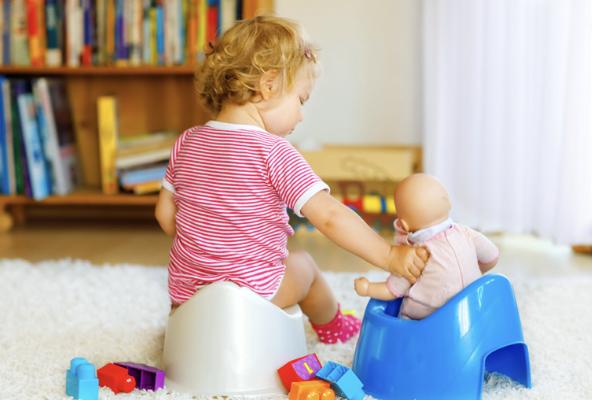Toilet training must be started at a particular time, early enough, not too late, when the baby starts showing signs of readiness, such as walking, talking, or showing some gestures to communicate. The specific age to make the baby learn about the toilet is three years, or you can start before 3. Do not force the kid to do so but let them know with love. Delayed learning and practice can lead to urinary tract infection, constipation, the uncontrolled urge to poop or pee, or sometimes constipation can also occur among babies.
Tips for successful toilet training:
Following are the tips for successful training:
- Willingness
Make sure the baby is interested in getting toilet training instead of making them learn forcefully. Take the child with you when to buy a potty so the baby might feel involved from the beginning. You can guess the willingness when the baby tries to talk and starts to walk or crawl. Take the baby to the toilet after three years if they still do not begin to walk or crawl. Make them learn too.
- Comfortable under clothing
Wear those elastic, loose, or adult kid underwear so they can remove efficiently, or use such pants that can be quickly taken off during toilet training. Make babies interested by buying their favorite cartoon sticker on that underwear and tell them why the toilet is necessary.
- Communication
Communicate with the kid about the usefulness of toilet training and keeping hygiene. Try not to wear diapers all day and talk with them when they do the toilet to engage them in doing it correctly.
- Convenient spot
Place the potty in such a place where the baby feels comfortable to pee or poop. Keep it in the room or the toilet where the kid quickly does it. Sometimes babies fear falling into the bathroom, so use another kid’s toilet or potty to make them comfortable.
- Porper Schedule
Always make a schedule to use the toilet. Make the babies do it early after waking up, after eating, and before sleeping, so this will be helpful for you too, and the baby will have a set routine to do so.
- Bounty and Incentives:
To make the child take an interest in toilet training, sing a song or make a specific song toilet, read a book to them, or give them a comic, carton book, or toys as a reward for learning. Shift to Toilet training when the child learns the basics of the toilet and removes the potty so they can use the bathroom on their own and reduce their fear of falling by doing the same in front of them.
- Toilet accidents
During toilet training, it is possible to face some accidents, so do not be aggressive toward the children and try to keep yourself calm. Don’t make toilet training a scary phase for them, as holding up poop or pee for a long time can be dangerous. Do not scold the kids and treat them with love and affection.
Conclusion
Toilet training is essential in a baby’s life. Make them learn about using a toilet, and for successful training, parents, and caregivers must give proper time and keep patience. Use rewards, try to make them learn, baby, watching you instead of forcing, and start training when you see the urge to learn and begin at three or before it, but do not delay the process after 3.

